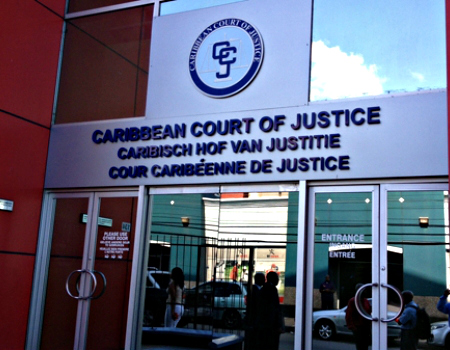The island ratified the agreement establishing the Caribbean Court of Justice on July 5th, 2002

The Government of Saint Lucia has announced that it will join the Caribbean Court of Justice (CCJ), after amending the Constitution of Saint Lucia. The announcement was made by Her Excellency Dame Pearlette Louisy, Governor General of Saint Lucia, during the 2014 Throne Speech.
The following is an extract from the Throne Speech, which was delivered in the Parliament Chamber, on Tuesday, May 6, 2014:
“Mr. President, Mr. Speaker, on February 14, 2001, the Government of Saint Lucia joined other CARICOM states and signed the Agreement to establish the Caribbean Court of Justice, “the CCJ”. On July 05, 2002, Saint Lucia ratified the Agreement.
This meant that we accepted the original jurisdiction of the court to pronounce on matters in respect of the rights and obligations arising out of the Caricom Treaty, technically known as the “Revised Treaty of Chaguaramas Establishing the Caribbean Community Including The CARICOM Single Market & Economy.”
When Saint Lucia joined the CCJ, we did not proceed to abolish appeals in civil and criminal matters to Her Majesty’s Privy Council. My Government believes that the time has now come to replace Her Majesty’s Privy Council by the Caribbean Court of Justice.
By including section 41(7) in our Constitution, the framers clearly intended that the Privy Council be replaced if Saint Lucia entered into an international agreement “constituted in common for Saint Lucia and for other countries also parties to the agreement.” The treaty establishing the Caribbean Court of Justice is one such international agreement.
Mr. President, Mr. Speaker, this, of course, is not the occasion to recite all the arguments why such a step is so compelling at this time. Suffice it to say that the position of My Government is captured succinctly in this statement by His Lordship Mr. Michael De la Bastide, the former Chief Justice of Trinidad and Tobago and later President of the Caribbean Court of Justice. His Lordship said,
“ [It] is inconsistent with the status of an independent country to acquiesce in a situation where apparently on a permanent basis, or even on a temporary basis, you abdicate from the responsibility of making the final decision in judicial matters yourself and ask somebody else to come and do that for you…..As a matter of principle, [that] is objectionable”.
My Government has, on numerous occasions, pronounced on this issue. It has repeatedly said that it was desirous of acceding to the appellate jurisdiction of the Caribbean Court of Justice.
It accepted that there was some ambiguity in the interpretation of the provisions of the Constitution of Saint Lucia, S.I. 1978, No. 1908.
This ambiguity posed two major questions. Firstly, whether abolition of appeals to the Privy Council required amendments to the Constitution of Saint Lucia, including a referendum? Or alternatively, whether an error was made in the drafting of section 41(7)(a) of the Constitution when it referred to section 107 instead of section 108 of the Constitution. If of course, there was an error then there would be no need for a referendum as part of the process to effect changes to the Constitution.
My Government understood and respected the passions surrounding the issue and opted, as a first step, to seek authoritative advice from the Court of Appeal.
This was done by way of a reference by the Attorney General with the approval of Cabinet, to the Court inviting it to interpret the provisions of the Constitution which were in contention.
Understandably, opinion was divided.
The Court had the opportunity to hear arguments from both sides, those who supported the view that there was an error and those who felt that there was no error at all. In the end, a majority of the Court ruled that there was indeed an error in the Constitution and the Court was authorized to correct the error.
My Government will therefore follow the lead of the Commonwealth of Dominica and proceed, pursuant to section 41(7) of our Constitution, to advise Her Majesty’s Government that it wishes to give effect to the international Agreement establishing the Caribbean Court of Justice. Once the agreement of the Government of the United Kingdom is secured, a Bill will be tabled to effect the necessary amendments to the Constitution.
My Government appreciates and understands that there will be those who will disagree with its interpretation of the Constitution and therefore, may seek to strike down the Bill to amend the Constitution. Such a decision is totally within their rights. Indeed, it is always a tribute to our democracy when we can resolve our disagreements peacefully, by turning to our Courts including the very Privy Council that the Government seeks to replace by the Caribbean Court of Justice.
Let it never be said that we are an ungrateful nation. We shall always be grateful to the United Kingdom Government for the years it has allowed us to use the Privy Council as our final Court Of Appeal.”
The full text of the Governor General, Her Excellency Dame Pearlette Louisy's speech is attached below. Click to open.
--